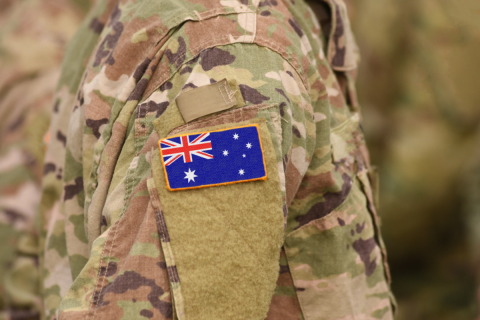Gambling and Military Veterans

Australian veterans are at significant risk of experiencing gambling harm, which they are usually not seeking help for (commonly referred to as “problem gambling” or “having a gambling addiction”).
In this blog post, we discuss why veterans gamble, the dangers of gambling harm for Australian veterans, where to access support, how to protect yourself from gambling harm, and strategies to reduce or quit gambling.
Why do veterans gamble?
Veterans are likely to gamble due to:
- Stress and using gambling as a stress relief
- Wanting an “escape” from the post-service lifestyle
- Mental health disorders like anxiety and depression
- Boredom and not knowing what to do with themselves
- Having excess money due to paying out their military leave or military entitlements
- Feeling alienated from society after leaving the military (no structure or routine, not having any social connections, not having any professional obligations or commitments).
“Sometimes you’re not sure what to do – how to structure a day and time can be difficult. When you’ve been ordered where to be and what to do, the idea of now having choices can be difficult to deal with at first. You can easily see how clubs and gambling are appealing while you’re working out what’s next.”
-Reece*, Military Veteran, GHQ Client
These risk factors combined with the easy access to gambling mean Aussie veterans are at high risk of experiencing gambling harm or developing a gambling disorder.
Returned Services League of Australia (RSL) venues are important for veterans to connect with peers and link with services. RSLs also offer entertainment options which can include gambling products such as pokies, bingo, slots, and keno.
“A lot of RSL clubs are set up for veterans to keep connections with the service community. These places recognise the work and lifestyle veterans have had.
A lot of the time, RSLs are pretty dense with poker machines… It would be good to have places like that where gambling isn’t a focus.”
-Reece
RSLs in Tasmania have recently removed high-intensity gambling products from their venues in an effort to combat gambling harm in veterans.
Online products such as sports wagering and unlicensed digital casinos are also readily available options for gambling.
Australian veterans are at high risk of “problem gambling”
A study of Australian Defence Force (ADF) veterans found they are twice as likely to be harmed by their own gambling than civilians.
Within five years of leaving the military, over 13% of veterans who responded to the study experienced some form of gambling harm, while 11% of veterans did not seek help for their gambling.
The study found these veterans were also struggling with alcohol and substance abuse and post-traumatic stress disorder (PTSD). Gambling harm doubles suicidal ideation and suicidal attempts.
Alarmingly, 40% of Aussie veterans experiencing gambling harm have thought about suicide; 20% have attempted suicide. Help is available: You can call Lifeline at 13 11 14. If you are a veteran or the family member of a veteran, immediate counselling or someone to talk to is available with Open Arms 24/7 at 1800 011 046.
How to quit gambling
Stopping or quitting gambling isn’t easy. Often a person needs to work through a range of issues before they get to the point they’re no longer being harmed from gambling. For some people, focusing on strategies to reduce their gambling or introducing safer gambling techniques might be more effective in the long-term.
A Gambling Help Counsellor will never tell you to just “stop gambling”. They understand there can be multiple factors contributing to someone’s gambling harm. They can share strategies for safer gambling that may eventually help you stop gambling. Here are some tips for self-help to reduce or quit gambling.
“For me, it’s been really important to build strong connections. It could be talking with friends, exercising, or going for a walk; having something there so I don’t have to fill an empty void through gambling.”
-Reece
You may also wish to self-ban from gambling venues and online gambling.
Support is available
If you would like to talk about your or someone else’s gambling, help is available.
Gambling Help Queensland offers free, confidential, 24/7 support and advice from trained Gambling Help Counsellors. You can speak to a counsellor or schedule an in-person session by calling the 24/7 helpline at 1800 858 858.
“I knew I was being heard without judgment. I wasn’t being rushed off the phone. I was quite emotional… It meant a lot to be treated as a human. That initial call was supportive and nonjudgmental.
Help and support outweighed what I’d hoped or expected.”
-Reece
A note about gambling terminology
How we talk about gambling matters.
You may notice our website, social media, and the Gambling Help ads on TV tend to avoid phrases like “gamble responsibly”, “problem gambler”, “gambling addict”, and “stop gambling”.
These phrases can give gambling a negative stigma and can be perceived as placing blame on the person who is gambling.
Instead of “problem gambler” or “gambling addict” you might see us use phrases like “person experiencing gambling harm”.
Your counsellor will never order you to just “stop gambling”. The Gambling Help service can help you explore options for safer gambling and to reduce, change, or stop your gambling at your own pace.
Contact us
If gambling is impacting your life or a loved one's life, it's okay to reach out for help. It’s free and confidential.
Call the 24/7 Gambling Helpline on 1800 858 858
Face-to-face counselling locations




